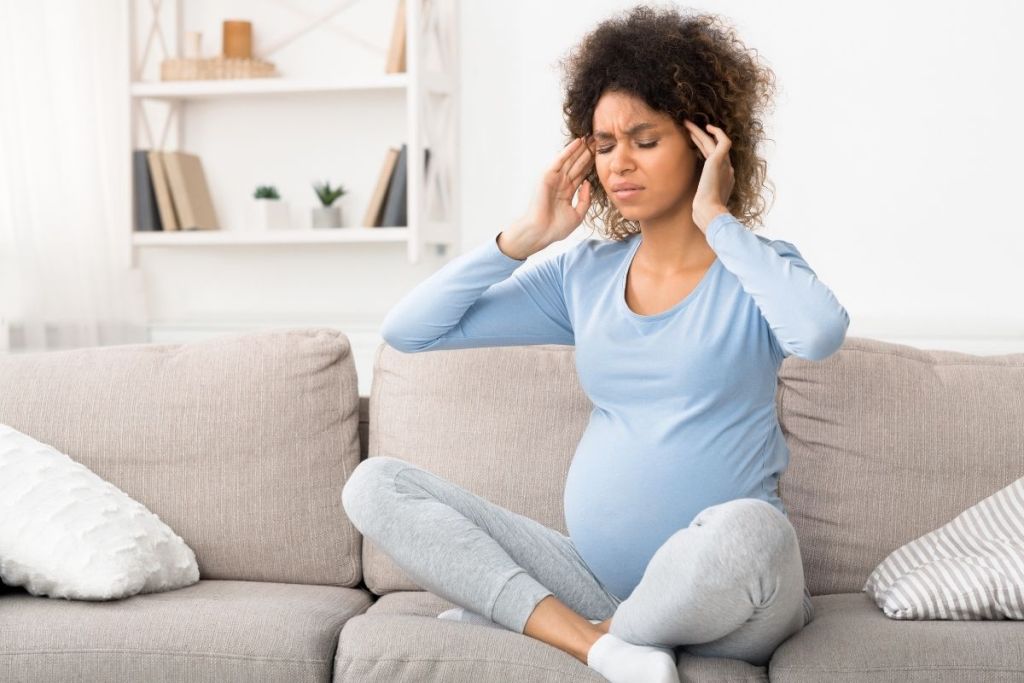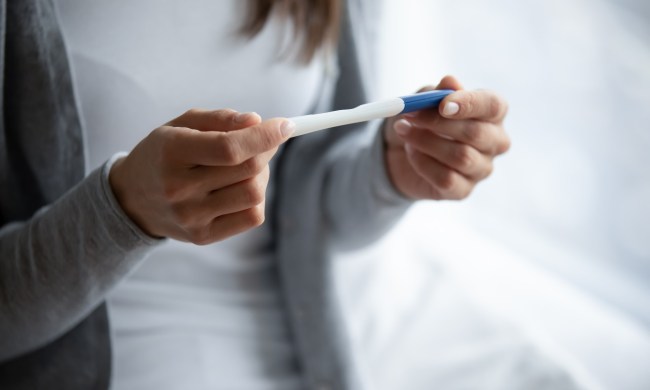About 39% of pregnant and postpartum women experience headaches, so you’re not alone if you’re in that boat. They are a pain–literally–but they’re often able to be treated with something as simple as rest or water and they are often nothing to worry about. However, sometimes, they can indicate something serious is going on. Once you know the causes of pregnancy headaches, you can make an informed choice about calling your doctor.

What causes headaches during pregnancy?
Your body experiences so many changes during pregnancy, and that in itself might be the reason for a headache. The sheer number and speed of changes your body is going through Another may be the change in blood flow. Your body produces 20% to 100% more blood than usual when pregnant and the increased flow throbbing through your head may be a headache culprit.
Besides higher blood volume, these are possible causes as well:
- Hormonal changes
- Caffeine withdrawal
- Low blood sugar
- Dehydration
- Hunger
- Vomiting
- Stress
- Lack of sleep
- Sensitivity to light
- Vision changes
- Posture changes
- Muscle strain and muscle tightness
- High blood pressure
- Sinus congestion
As you can see, this list is long but it isn’t exhaustive (though it can be exhausting!). Any one–or more–of these can cause headaches. You can get headaches from different causes throughout all three trimesters. Tension headaches are especially common in the first trimester, and headaches caused by muscle strain are more common in the third trimester.
Some of these causes can be treated (like taking a nap for lack of sleep) or prevented (like wearing sunglasses for sensitivity to light) if you can pinpoint the cause. Go down the list to see if any of them apply to you and if you can make any changes like drinking more water to help. Others, like increased blood volume or hormonal changes, cannot be changed.
Migraines may appear for some people in pregnancy when they never had them before. “Even though migraine is a genetic neurologic disease, it has many different triggers, and a drop in estrogen or change in estrogen level can be a trigger,” says Dr. Amaal Starling. The hormonal shifts can affect endless workings in your body, including causing headaches. However, if this is the culprit for you, it could be short-lived because estrogen levels in the second and third trimesters are very stable: “Because of that stability, migraine during the second and third trimesters of pregnancy will often go into remission or improve significantly.”

When should I call a doctor about pregnancy headaches?
You should talk to your doctor regularly about any changes you experience that concern you or you are wondering how to treat. Some doctors may say taking Tylenol (acetaminophen) for a headache is okay and others may advise you against it. (Taking aspirin and ibuprofen are generally not recommended.)
They may recommend rest, ice packs, heating pads, stretches, massage, exercise, or other home remedies depending on what they suspect is the cause. You may also want to avoid migraine trigger foods like chocolate and dairy.
Your doctor can test your blood pressure, blood sugar, vision, and other factors to see what is causing your headaches. They might also want to make sure your headache isn’t being caused by high blood pressure or something else that needs treatment for the safety of you and your baby. Headaches in the second and third trimesters can be a sign of preeclampsia, a serious condition.
“Headaches are common in women both in and outside of pregnancy,” according to Dr. Kelley Saunders, “but whether they are normal or not should always be discussed with your doctor.”
One important reason to tell your doctor about your headaches is that if the cause is high blood pressure, this can raise the risk of stroke, preterm delivery, placental abruption, and other issues. Headaches can also accompany other issues your doctor needs to know about like diabetes, sinus infection, or blood clots.
Give your doctor a call if:
- Your headache is accompanied by other symptoms like blurred vision, abdominal pain, puffiness in your hands or face, or fever
- You’re unsure how to most safely and effectively treat your headache(s)
- Your headache lasts more than three hours
- Your headaches are persistent, chronic, or interfering with your daily life
- Your headaches get worse than before or you have a headache for the first time ever
- None of the remedies you tried worked
- You’re worried about your headache(s)
Most of the time a headache in pregnancy is caused by nothing to worry about, but in the rare case it signals preeclampsia or another serious condition, it’s best to let your doctor know.



